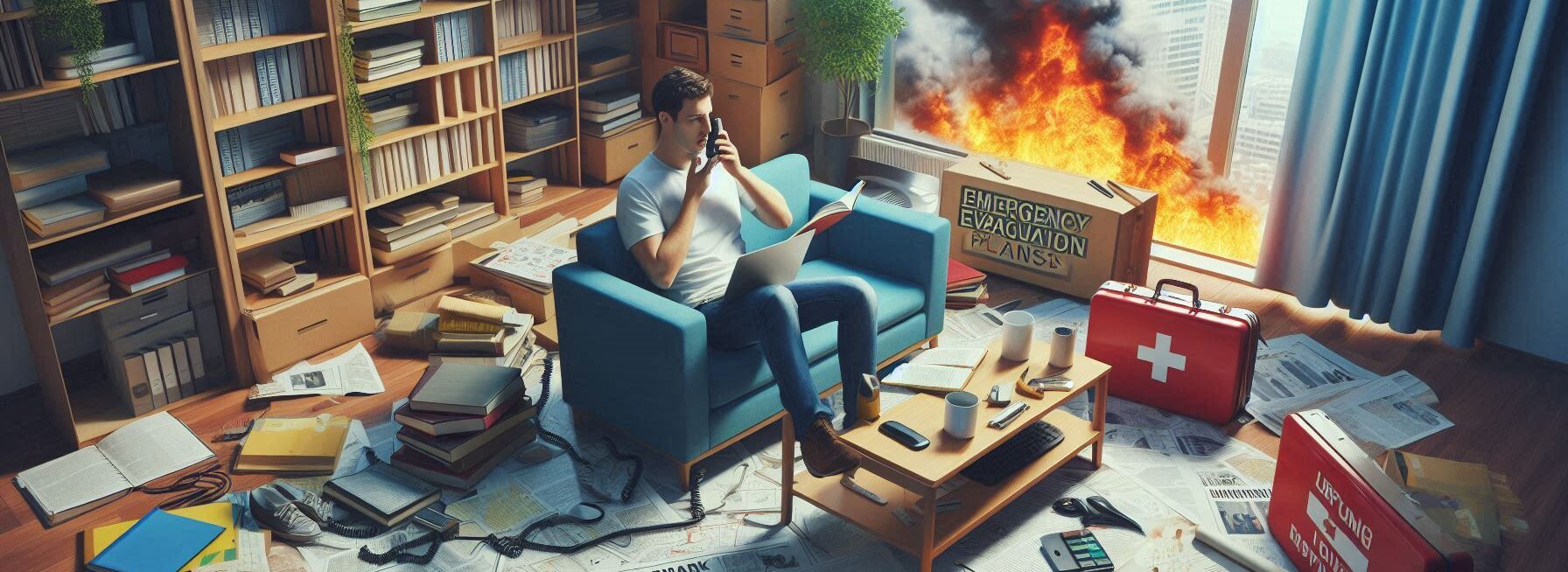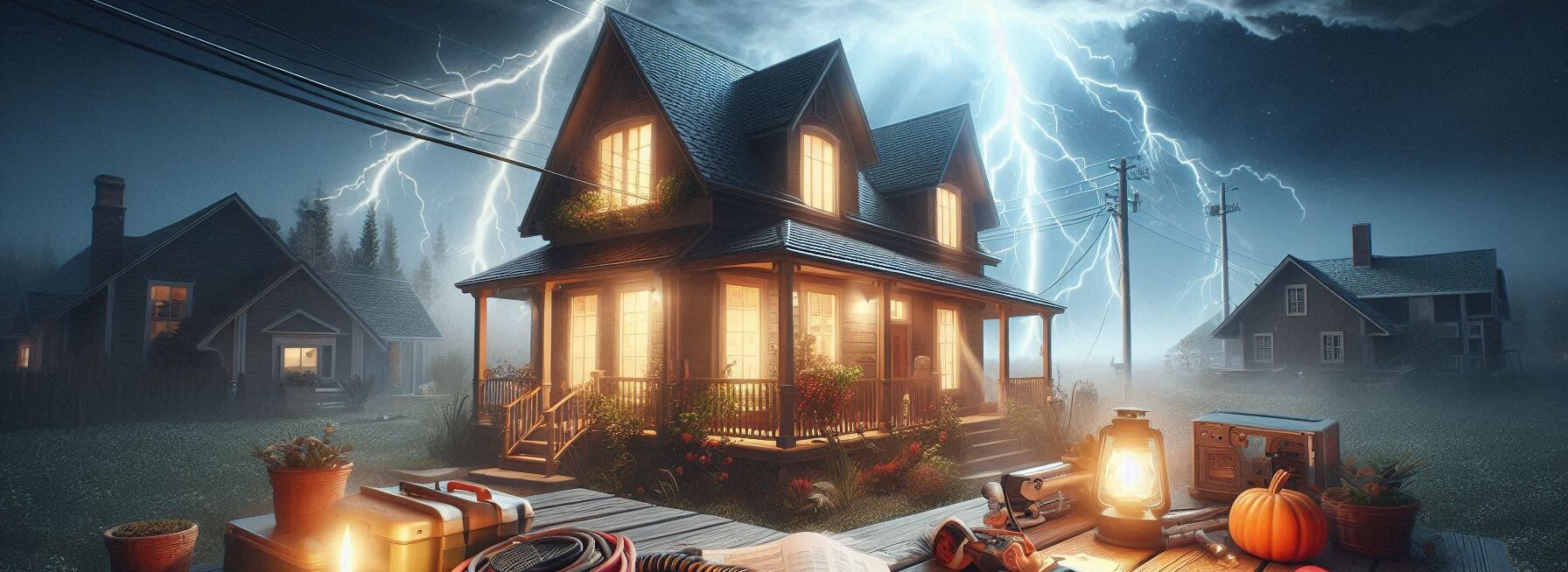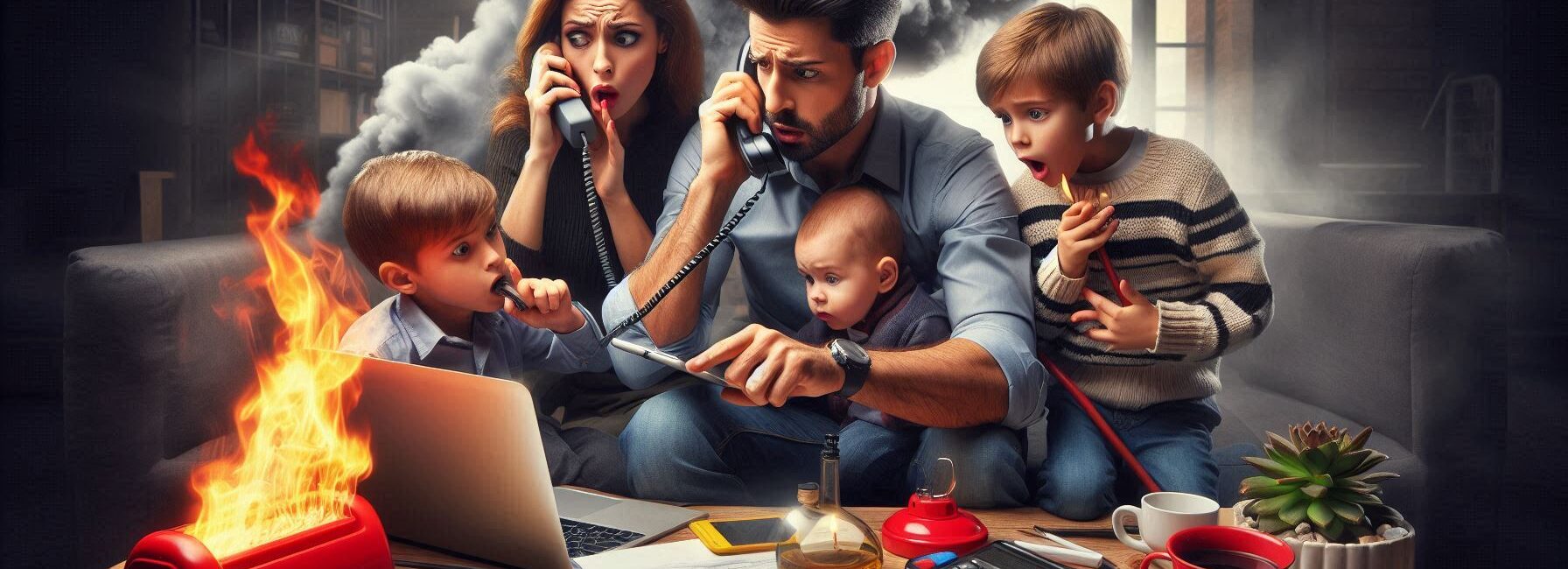Last Updated on November 2, 2025 by Kevin Collier
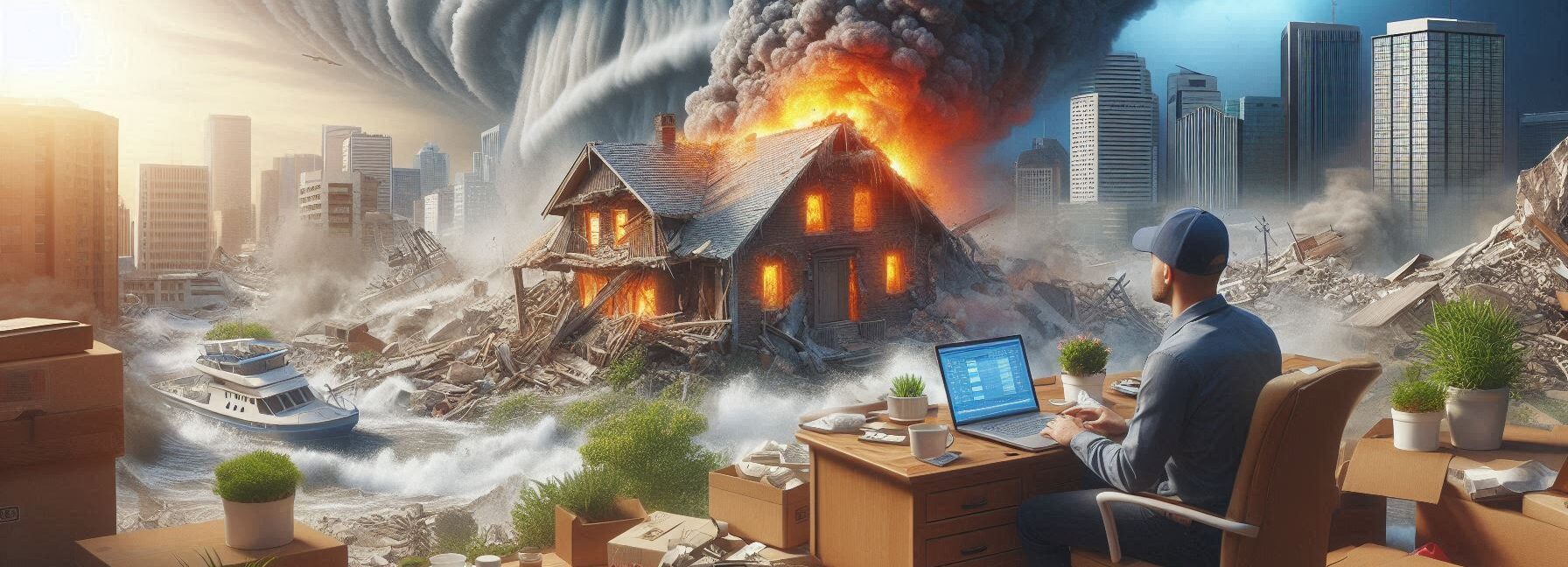
Top Takeaways and Key Concepts
– Create a family emergency plan outlining meeting spots and communication methods.
– Assemble an emergency kit with essential supplies, including food, water, and first aid.
– Stay informed about potential disasters through local alerts and weather apps.
– Practice regular drills to ensure everyone knows the emergency procedures.
– Review and update your preparedness plans and supplies annually.
Being ready is very crucial when natural calamities happen. Seriously. Imagine this: you're in your living room during a hurricane and you stop moving. Do you save the cat or the TV?
Please Note: This post may contain affiliate links. If you click one of them, we may receive a commission at no extra cost to you. As an Amazon Associate, I earn from qualifying purchases.
Always, always get the cat first. You can trust me on that.
Let's talk about getting ready. First, get the things you need. You will need food, water, and a flashlight. A cool backpack can fit everything. A few snacks can help make it easier to deal with.
Consider what your family needs. Do you have any medicine? Put those in the bag. And remember to bring a first aid kit! Just in case someone gets a minor cut or bruise.
After then, look for a safe location to go. It could be a neighbor's residence or a community center. When things get wild, knowing where to go can save you time.
Work on it together. Think of your strategy as a fun game that you and your family can play. It will assist everyone know what to do if something goes wrong.
Also, check on your pets. Get a small carrier ready for your dog or cat. Make sure they are at ease and understand that everything will be fine.
You could even make it a project for the whole family. Get everyone to help you acquire materials. You may even make a fun list of things you need. Add some fun gifts, like extra snacks, to the mix!
*** Shop for Survival Gear - Tools - Kits ***
Survival Gear - Bags and Backpacks - Knives - Boots/Footwear - Communication
Outdoor Cooking - Gloves - Hydration - Dry Boxes - Water Filtration Systems
Tents - Sleeping Bags - First Aid Kits - Multi-Tools - Flashlights - Fire Starters
Navigation - Survival Food - Night Vision - Headlamps - Stun Guns - Binoculars
You'll feel a lot better after all of this. You will be ready when storms or other unexpected happen. You won't have to worry about what to grab; you'll know what to do.
So, let's get ready together! It's like a big trip, and who doesn't like munchies and cute animals? Be cautious, and always put kitties first! 🐾🌧️
Understanding Your Risks
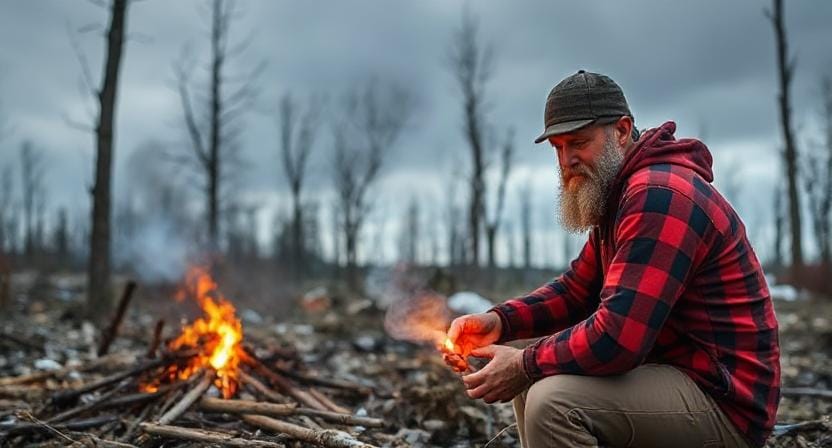
First things first: know what you're dealing with. Are you living in an area prone to hurricanes, earthquakes, tornadoes, or floods? It’s like picking a favorite flavor of ice cream; some choices are just better suited for certain situations.
For example, if you live on a fault line, preparing for an earthquake is essential—unless your idea of fun is waiting for that shaky moment when everything falls off your shelves.
Spend some time looking into the dangers in your area. You might find out that your community has a history of flash floods that could wash away your shed and maybe even your neighbor's collection of inflatable flamingos (sorry, Greg!). Local government websites can include useful information about risks that are unique to your area.
Now that you've found possible risks, think about how they might affect you. Do you need to leave? How would you leave? Should you stock up on munchies and watch episodes of “Survivor” as practice?
The answers will guide your preparation efforts and help build a solid foundation for your disaster plan.
Creating Your Emergency Plan
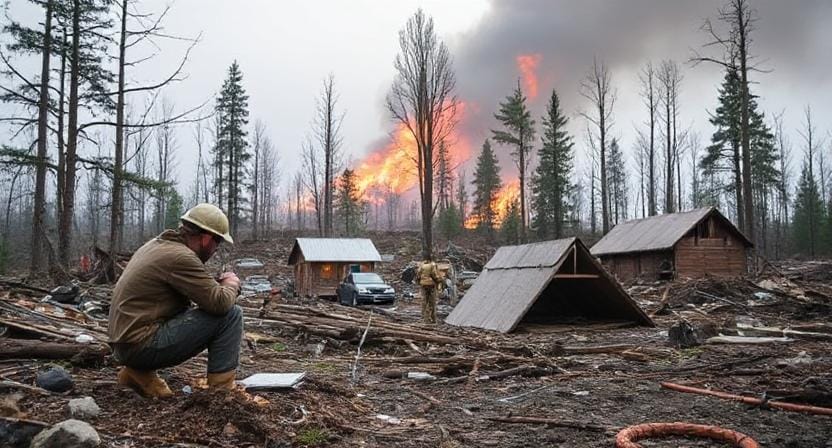
Okay, here’s where we get serious: it’s time to create an emergency plan. This isn’t just any plan; it needs to be more detailed than my strategy for winning board games with my family (which involves lots of sneaky moves).
Gather everyone in your household and discuss what each person's role will be during an emergency.
Start by deciding where you'll meet if you need to evacuate. Is there a tree outside that looks sturdy enough not to fall over in high winds? Perfect! Just make sure everyone knows how to get there—because nothing says “prepared” like wandering around lost while holding an umbrella upside down in a storm.
Next up: communication! How will everyone stay in touch if cell towers go down? Consider investing in walkie-talkies or setting up check-in times using landlines (yes, those still exist). I mean, who doesn’t love feeling like they’re part of a spy movie?
Finally, practice makes perfect! Conduct drills so everyone knows exactly what they need to do when disaster strikes. And remember: practice can involve fun activities too—like pretending you're on an episode of “Naked and Afraid,” but with clothes!
Assembling Your Emergency Kit
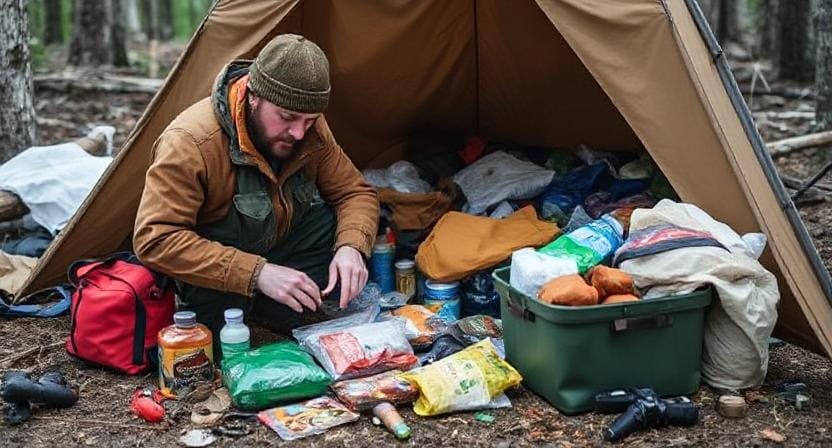
Let’s talk about assembling an emergency kit because every superhero needs their utility belt! What goes into this magical bag of tricks?
Start with water—lots and lots of water! The general rule is one gallon per person per day for at least three days. That means buying cases upon cases until it feels like you're running a mini-waterpark in your garage.
Next on the list are non-perishable food items like granola bars and canned beans (don’t forget the can opener!). Think shelf-stable foods that won’t spoil faster than last week’s leftovers from Taco Tuesday—trust me; nobody wants surprise tacos during an emergency!
Don’t forget personal hygiene items because even during disasters, nobody wants stinky socks lying around! Also include flashlights (with extra batteries), first-aid supplies, and any necessary medications.
If you're like me and can't function without coffee—even post-apocalypse—you may want some instant coffee packets too!
And speaking of comfort items: consider including blankets or stuffed animals (for emotional support) because let's face it—the world can feel scary when everything's falling apart outside.
Staying Informed
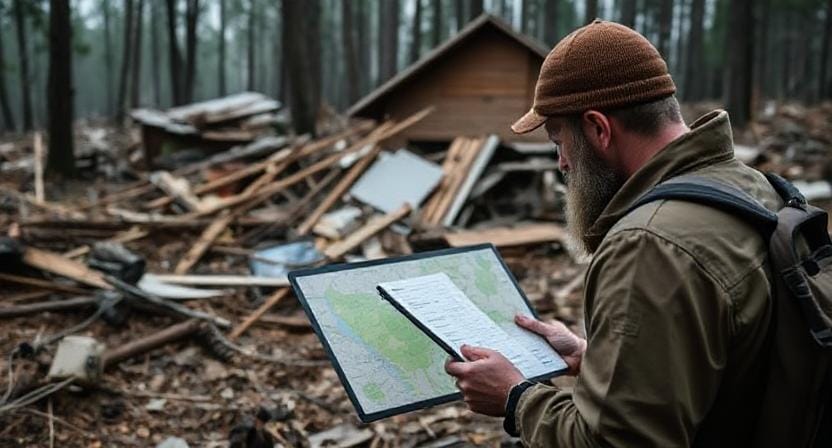
In today’s world filled with technology (and memes), staying informed has never been easier—or more confusing! Make sure you've got reliable sources lined up before disaster strikes because social media isn’t always accurate—it might tell you it's snowing when really it’s sunny outside.
Sign up for local weather alerts via text or apps so you're not left clueless while sipping lemonade on the porch as dark clouds roll in overhead. It's also smart to have access to battery-operated radios since power outages can happen faster than my kids finishing their homework assignments.
By the way, keep those radio batteries fresh! Nothing feels worse than trying desperately to tune into emergency updates only for static-filled silence mocking you instead.
Building Community Connections
Honestly, building connections with neighbors can save lives during emergencies—and let’s face it; it's nice knowing someone nearby has cookies during tough times! Organize neighborhood meetings focused on disaster preparedness where everyone shares tips and resources; this creates camaraderie while ensuring no one faces calamity alone.
Consider forming buddy systems where families look out for each other—especially those who might need extra help due to age or mobility issues. After all, teamwork makes us stronger… unless we’re talking about dodgeball games at recess!
If something catastrophic does occur and people must evacuate together safely—having established relationships allows smoother transitions rather than awkward introductions between strangers amid chaos (“Hi there! I’m Bob; I brought my pet iguana!”).
Practicing Self-Care During Disasters
Lastly—but definitely not least—don't forget self-care amidst all this preparation madness! Natural disasters are stressful events that affect mental health significantly—not just physical safety measures taken beforehand matter but also nurturing ourselves afterward counts too!
Engage in activities such as yoga stretches or meditative practices once things settle down after storms pass through town again—they’ll help ease anxiety levels considerably while offering moments of peace among chaos swirling around us all!
Remember laughter helps heal wounds too; share funny stories from past experiences spent camping outdoors gone wrong—it lightens moods immediately—even if mosquitoes were involved!
Frequently Asked Questions
Why is creating a family emergency plan important?
A family plan ensures everyone knows where to meet, how to communicate, and what steps to take if separated during a disaster.
What should be included in an emergency kit?
An emergency kit should contain food, water, first aid supplies, medications, flashlights, and other essentials needed for at least several days.
How can I stay informed before and during a natural disaster?
Signing up for local alerts, weather notifications, and monitoring official emergency channels can provide timely information and warnings.
How often should I practice disaster drills?
Regular drills help reinforce procedures so family members remember actions quickly and confidently during stressful situations.
Why should I update my preparedness plan yearly?
Annual updates ensure supplies remain fresh, medications are current, and contact information reflects any life changes.
Do pets need to be included in disaster planning?
Yes, pets require carriers, food, water, and a plan for safe transport to ensure their safety during an emergency.
How does knowing local risks improve preparedness?
Understanding which disasters are likely in your region helps you tailor plans, supplies, and evacuation decisions more effectively.
Suggested Resources:
Disaster Preparedness Guide
https://www.ready.gov/make-a-plan
Emergency Supply Kit Checklist
https://www.redcross.org/get-help/how-to-prepare-for-emergencies/survival-kit-supply-list.html
Local Weather Alerts
https://www.weather.gov/alerts

Kevin Collier is a seasoned survivalist and expert in prepping and homesteading, contributing to WiseSurvive.com. With a deep-rooted passion for self-sufficiency and outdoor survival skills, Kevin shares practical advice, strategies, and resources to help individuals prepare for any challenge. His informative articles cover a range of topics, from essential survival techniques to sustainable living practices, empowering readers to thrive in any situation. Whether you're a novice or a seasoned prepper, Kevin's insights will inspire you to take charge of your readiness and build resilience for the future.


